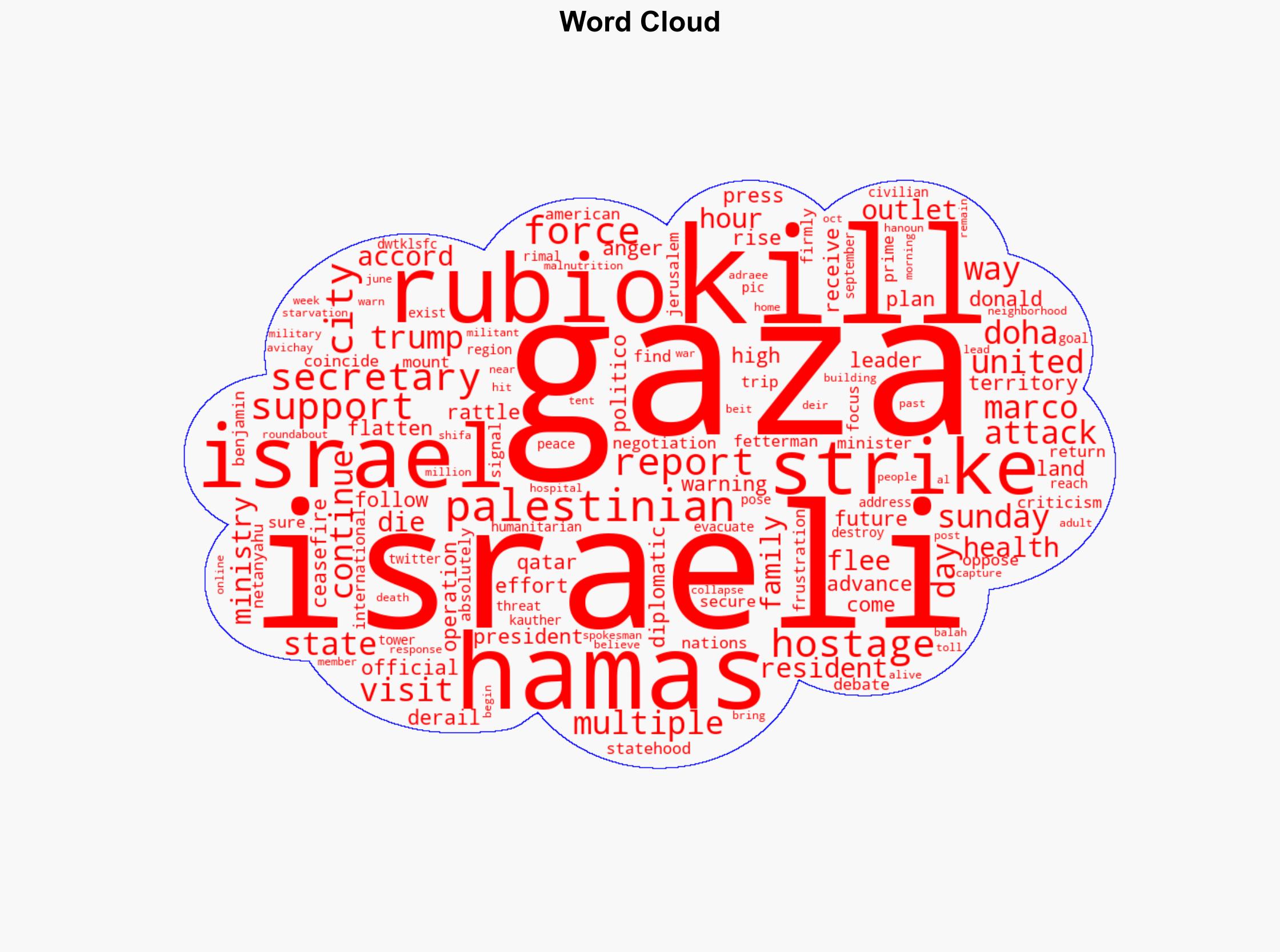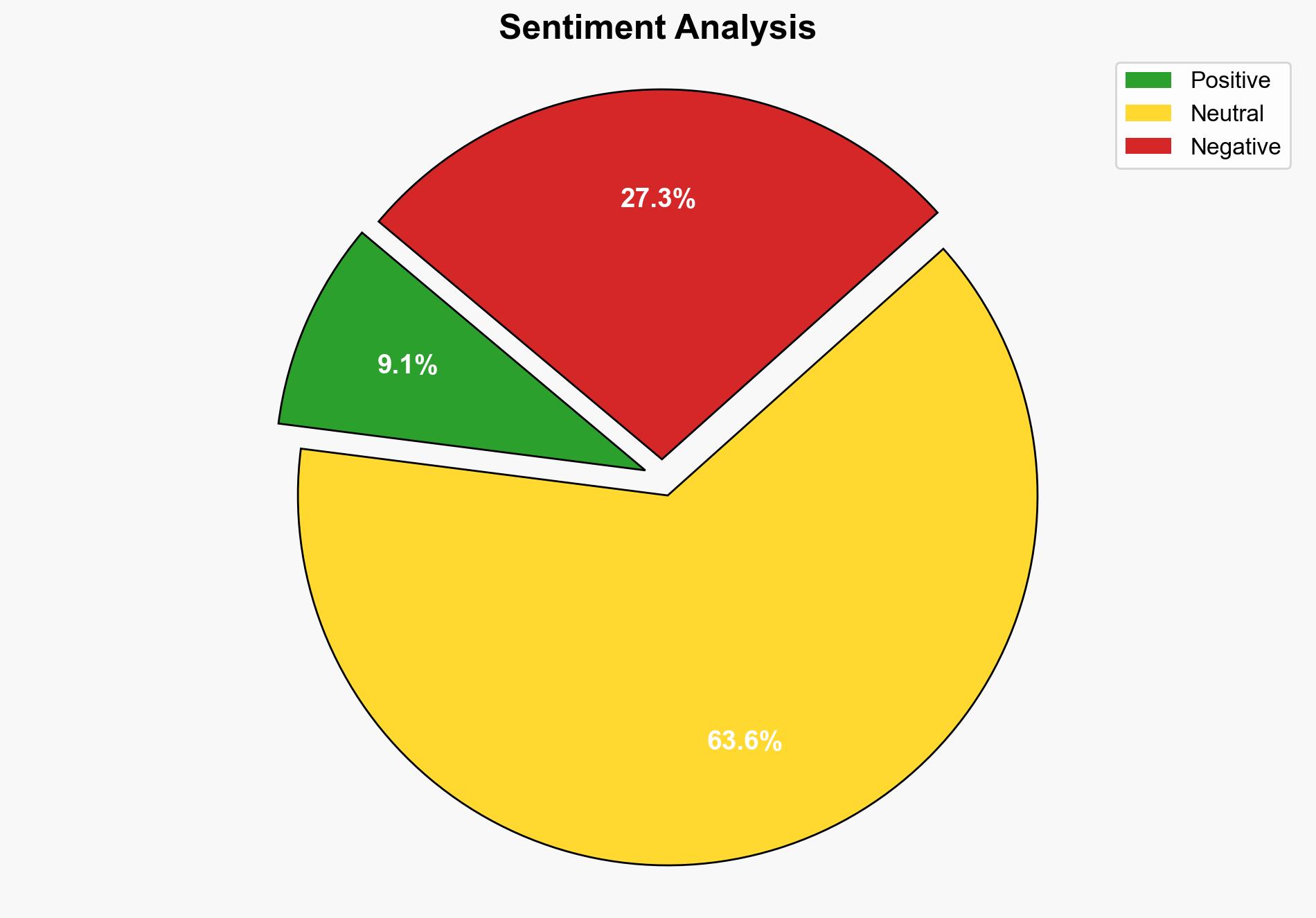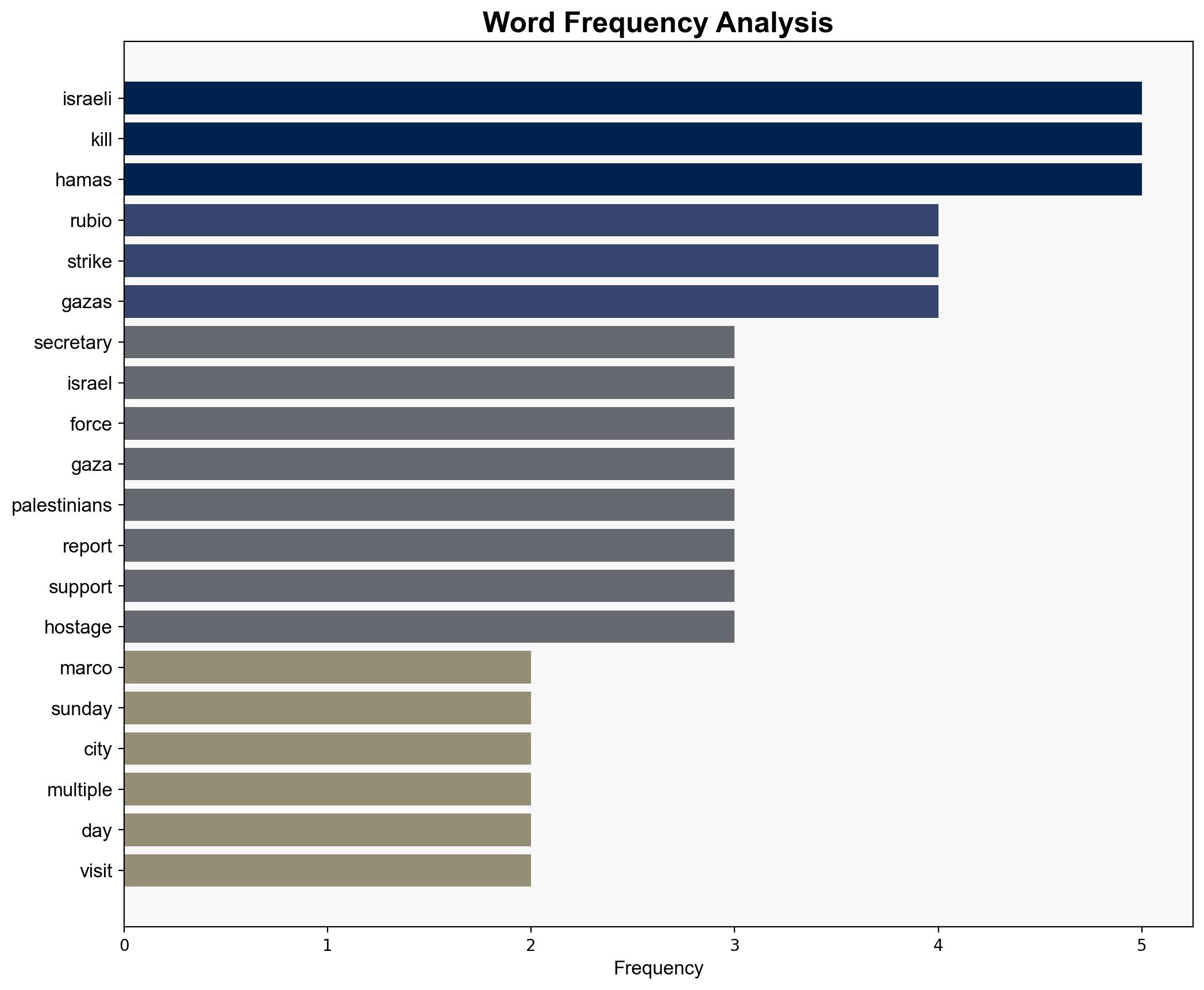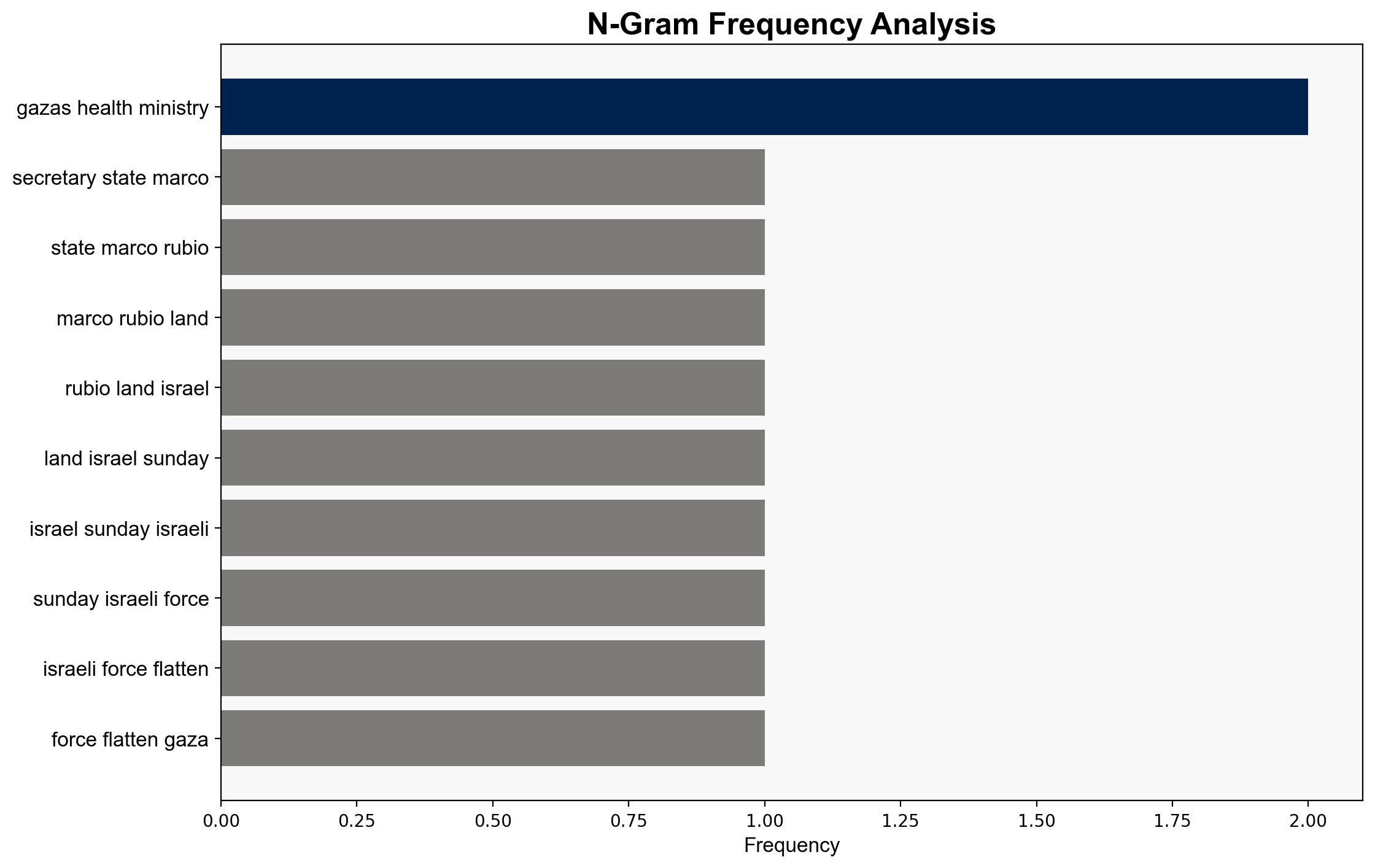Rubio Arrives In Israel As Conflict Intensifies – The Daily Caller
Published on: 2025-09-14
Intelligence Report: Rubio Arrives In Israel As Conflict Intensifies – The Daily Caller
1. BLUF (Bottom Line Up Front)
The most supported hypothesis is that Rubio’s visit to Israel signals continued U.S. support for Israel amidst escalating conflict, despite international criticism. Confidence in this assessment is moderate due to potential diplomatic complexities and lack of comprehensive intelligence on U.S. strategic intentions. It is recommended to monitor U.S. diplomatic engagements and military movements in the region to better understand future developments.
2. Competing Hypotheses
Hypothesis 1: Rubio’s visit is primarily a diplomatic gesture to reaffirm U.S. support for Israel amidst international criticism and to influence ongoing negotiations regarding Gaza’s future.
Hypothesis 2: The visit is a strategic maneuver to pressure Hamas and other regional actors by demonstrating U.S. commitment to Israeli security, potentially deterring further escalations.
Using ACH 2.0, Hypothesis 1 is better supported by the alignment of Rubio’s visit with diplomatic efforts and the context of U.N. debates on Palestinian statehood. Hypothesis 2 lacks direct evidence of strategic military objectives tied to the visit.
3. Key Assumptions and Red Flags
– Assumption: The U.S. has a unified strategic approach toward the Israel-Palestine conflict.
– Red Flag: Lack of explicit statements from U.S. officials regarding the visit’s objectives.
– Potential Bias: Confirmation bias in interpreting U.S. actions as solely supportive of Israel without considering broader diplomatic strategies.
– Missing Data: Details on internal U.S. discussions and potential backchannel communications with other regional actors.
4. Implications and Strategic Risks
– Escalation Risk: Continued military actions could lead to broader regional instability, affecting global energy markets and international relations.
– Diplomatic Strain: U.S. support for Israel amidst criticism could strain relations with other Middle Eastern nations and international allies.
– Humanitarian Concerns: Increased conflict may exacerbate humanitarian crises, impacting regional stability and international aid efforts.
5. Recommendations and Outlook
- Enhance intelligence collection on U.S. diplomatic engagements in the region to anticipate shifts in policy.
- Prepare contingency plans for potential regional escalations affecting global markets.
- Scenario Projections:
- Best Case: Diplomatic efforts lead to a ceasefire and renewed negotiations.
- Worst Case: Escalation into a broader regional conflict involving multiple state and non-state actors.
- Most Likely: Continued low-intensity conflict with intermittent diplomatic interventions.
6. Key Individuals and Entities
– Marco Rubio
– Donald Trump
– Benjamin Netanyahu
– Avichay Adraee
7. Thematic Tags
national security threats, cybersecurity, counter-terrorism, regional focus




